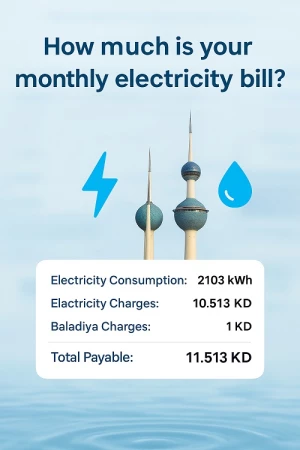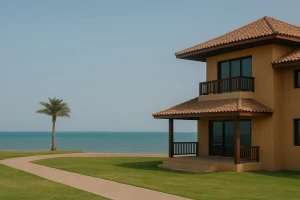Latest News
- Expats Alert: PACI Just Changed The Rules For Updating Your Addr...
- Best Pizza In Kuwait: Top Brands And What To Order
- Best Budget-Friendly Chalets & Villas In Kuwait For Weekend Geta...
- Why Electricity Bills Are Rising In Kuwait & Smart Ways Expats C...
- App Store Optimization: Why It’s Becoming A Core Part Of SEO Str...
- Best Shower Filters In Kuwait For Hair Fall And Skin Protection
- Exness Sets A New Standard Of Consistency In The Trading Industr...
- Instant Withdrawals In Trading – A Game Changer For Traders In K...
- Best Abaya Shop In Kuwait: Editorial Review Of Abay.com
- IPhone 17 In Kuwait: Prices, Colors, Specs & Where To Buy
- Best Drinking Water Filter For Home In Kuwait
- Avoid Common Qatar E-visa Application Mistakes. Learn The Top 5...
Government Fast-Tracks Construction Of Workers' Cities To Tackle Jleeb Crisis
Kuwait's Urgent Plan to Construct Six Workers’ Cities to Address Jleeb Al-Shuyoukh's Issues
The Council of Ministers has recently highlighted the pressing need to expedite the construction of six workers’ cities as a solution to the worsening conditions in Jleeb Al-Shuyoukh. This initiative is part of a comprehensive plan to revitalize the area and address various challenges.
Transfer of Land Ownership
In a recent directive, the Council has mandated the Kuwait Municipality to transfer ownership of six land sites to facilitate the development of these workers’ cities. This move is aimed at resolving long-standing issues in Jleeb Al-Shuyoukh, an area plagued by chaos and violations despite ongoing efforts by the Ministry of Interior and other state agencies.
Proposed Locations for Workers' Cities
According to a government report obtained by Al-Qabas, the proposed workers’ cities will be strategically located in Al-Subiya, Al-Salmi Road, North Al-Mutlaa, Kabd, South Sabah Al-Ahmad Residential City, and South Khiran Residential City. The Council of Ministers has instructed the relevant authorities to allocate these lands to implement a long-term plan to modify the area’s demographic structure and transform Jleeb into a model neighborhood. The ownership of these sites will be transferred to the Ministry of Finance and the Public Institution for Housing Care.
Urgent Need for Radical Solutions
Seven concerned parties have emphasized the necessity of radical solutions, including the evacuation of Jleeb to address the demographic imbalance, eliminate random constructions, and improve the deteriorating infrastructure. The ongoing encroachments on electricity and sewage systems further exacerbate the situation.
Delays and Pending Issues
A letter from the Expropriation Department, reviewed by the Council of Ministers, indicates that the reconstitution of the Jleeb Al-Shuyoukh Valuation Committee has been pending since 2022, delaying compensation for expropriated plots. Despite having the financial capability, the plan for workers’ cities has faced significant delays. Jleeb Al-Shuyoukh, home to approximately 266,000 people within an 8-square-kilometer area, has a Kuwaiti resident population of only 1.5%.
Infrastructure Concerns
The report highlights 13 unimplemented recommendations that have worsened the area’s conditions over the years. Correspondence from the Ministry of Electricity, Water, and Renewable Energy outlines plans and services for the region, including high-voltage services and existing underground cables. Additionally, a letter from the Ministry of Public Works dated November 28, 2023, details the poor condition of the sewage network, rainwater systems, and roads in Jleeb Al-Shuyoukh. The last significant maintenance on the area’s roads occurred in 2010, with only emergency repairs being carried out since then.
Future Plans and Coordination
State authorities have warned that Jleeb Al-Shuyoukh could become a hotspot of randomness and infrastructure decay. The Housing Authority is working with Chinese counterparts to establish workers’ cities in Subiya and South Jahra. Moreover, the Ministry of Public Works has prepared a tender for infrastructure works, part of a consulting agreement to study, design, and supervise these efforts.
Conclusion
The Council of Ministers is pushing for immediate action to transfer land ownership, prepare plans for workers’ cities, and provide detailed reports within two months. The primary goals are to address the demographic imbalance, improve security and traffic conditions, and urgently develop the area’s infrastructure.





